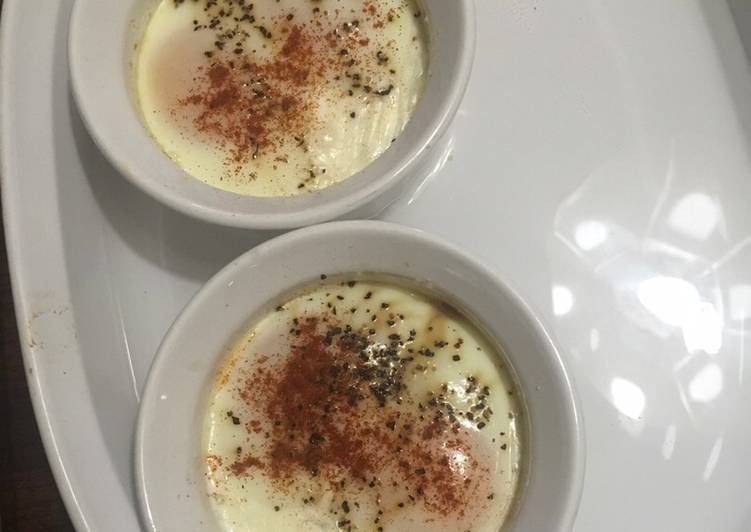Recipe: Delicious Shired eggs

Recipe: Delicious Shired eggs Delicious, fresh and tasty.
Shired eggs. These delicious eggs are baked with cream, chives, and Parmesan cheese. Something magical happens when you bake eggs with cream: They turn into a dense, silky custard, becoming much more than the sum of their parts. This recipe for baked shirred eggs is easy to make and delicious.
For the complete recipe to accompany this video please visit.
Shirred or baked eggs are an easy and elegant way to cook eggs for breakfast or brunch.
Top with a little cream and Parmesan cheese for an even more divine dish.
You can cook Shired eggs using 5 ingredients and 5 steps. Here is how you cook it.
Ingredients of Shired eggs
-
You need of eggs.
-
Prepare of Salt.
-
It’s of Pepper.
-
You need of cream.
-
You need of Paprika.
Shirred eggs are a simple baked egg dish that is delicious for breakfast, brunch, lunch, and sometimes even dinner.
Traditionally, they are cooked in a flat bottomed dish called a shirrer (hence the name).
Shirred eggs, or oeufs en cocotte as they are known in France, accompanied by toast soldiers (thinly-sliced sections of toast) are one of the most glamorous, velvety breakfast dishes around.
Baked-egg dishes have become a staple of menus and home kitchens alike.
Shired eggs step by step
-
Butter individual ramekin cups cover bottom and sides with buttered cracker crumbs.
-
Drop in eggs little salt black pepper cream.
-
Set in pan with little hot water.
-
Bake at 350.
-
Add paprika.
In fact, we appear to have entered a golden age of shakshuka.
Shirred eggs, commonly referred to by the French phrase oeufs en cocotte, are essentially eggs baked in The original French term for shirred eggs, oeufs en cocotte, literally translates to "little egg.
Eggs in supermarkets don't even have half the Shirred Egg Cooking Tips.
With eggs, cooking at a low temperature is almost always preferred.
It's a pity we have to.

